Despite being bolstered by an unprecedented degree of Chinese diplomatic and material support, Myanmar’s military has had mixed results in the past few weeks, in the face of mounting economic and fiscal challenges.
The State Administrative Council (SAC) - as the junta is officially called - has continued to suffer military setbacks that have economic implications of their own.
With the capture of Kan Paik Ti, the Kachin Independence Army (KIA) has consolidated control of the entire border with China and stepped up their offensive in the mineral rich regions.
The KIA announced that it would allow the resumption of rare-earth mining in the Pangwa-Chipwi region, now under its control.
In Rakhine, the Arakan Army captured Toungup, which prevents overland supply to Kyaukphyu from the south.
The Arakan Army have captured the military’s last posts in Ann town, home of the headquarters of the Western Military Command and a major pumping station for the oil and gas pipelines to China.
Over 800 soldiers – mainly hastily trained conscripts – have surrendered in the recent campaign. The Arakan Army now controls 11 of 17 towns in Rakhine.
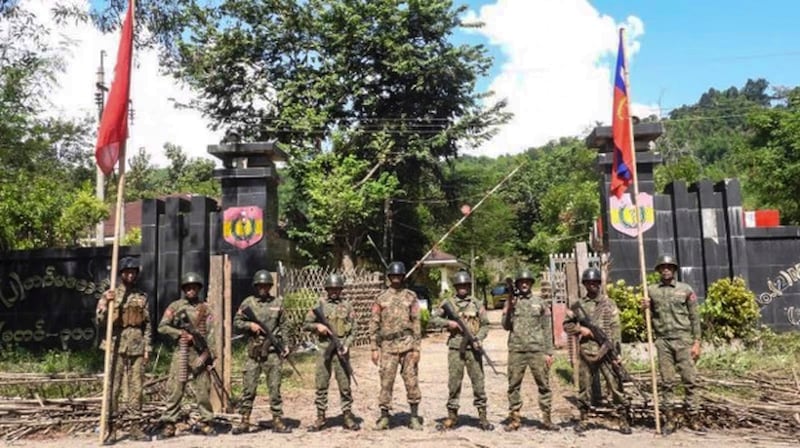
While there has been considerable tension between the Arakan Army and the fractious Chin opposition forces in the past, there’s been an unprecedented degree of cooperation now.
Local Chin Defense Forces and the Arakan Army have interrupted resupply convoys from Magwe into Ann, capturing at least 14 soldiers.
Ceasefires in Shan state
In northeastern Myanmar near the border with China, the Chinese stepped up their pressure on the Myanmar National Democratic Alliance Army, or MNDAA, and the Ta’ang National Liberation Army, or TNLA.
On Dec. 4, the MNDAA, which has been fighting for years for autonomy for the Kokang region, declared a ceasefire in its war against the military, the second insurgent force in days to cite pressure from China for its willingness to talk peace.
The move followed the TNLA’s announcement that they would agree to talks with the junta.
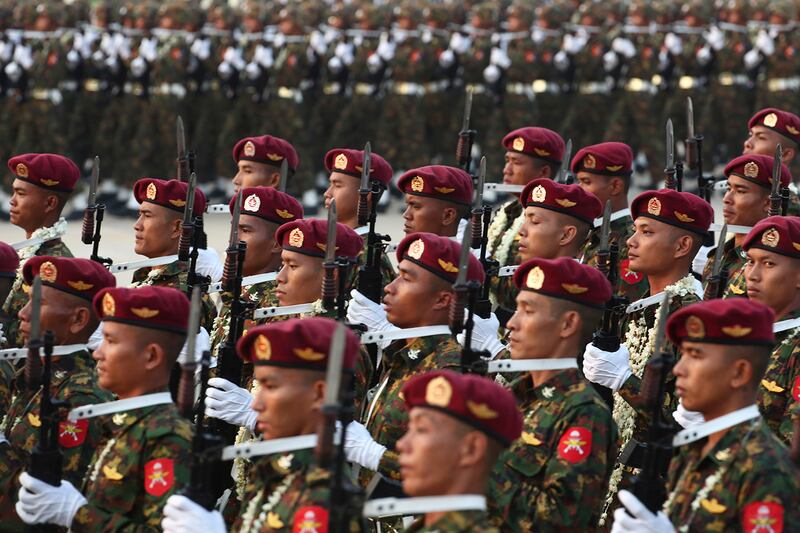
The regime’s counter offensive in northern Shan state continues to make little headway, and the battles have been pitched and casualties high. The regime continues to intentionally target civilians with air power.
The opposition has suffered some setbacks in Karenni and in Magwe and Sagaing, where logistics troubles continue to impede their gains. Karen forces continue to opportunistically ambush junta forces.
But the junta is facing its own resource challenges, and is desperate to reverse its losses ahead of Chinese-supported elections that are scheduled for 2025.
But with only 40% of Myanmar’s territory under its full control, it’s hard to see how elections could serve as anything but a shambolic off-ramp for the generals.
Despite the overall 12% contraction of the economy since the February 2021 coup d’etat, the junta’s defense expenditure has surged by 222%, from 1.746 trillion kyats in 2021 to 3.703 trillion kyats in 2022 to 5.635 trillion kyats (over US$2.7 billion) in 2023.
The regime has not disclosed its defense budget for 2024 or 2025.
Tight finances ahead
At a recent meeting of the SAC’s Financial Commission, Gen. Soe Win acknowledged that Min Aung Hlaing had directed spending on security to take precedence over all other public spending, despite the fact that the military’s provision of these public goods and social services has withered in the past three years.
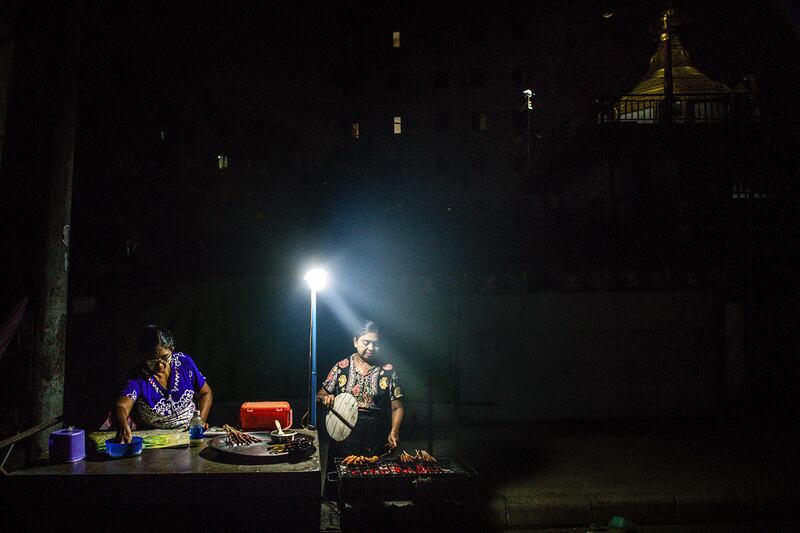
A recent Radio Free Asia report found that the country is producing only 300MWs of electricity, a 25% decline since the coup, with many power generating facilities inoperable, or beyond the junta’s control. The country requires 540MW.
Where the money for increased defense spending will come from, is anyone’s guess. Finances are tight for the junta, with foreign exchange in perpetually short supply.
The regime’s currency controls remain in place, which has devastated the business community, forcing them to sell their foreign exchange at artificially low rates, prompting more companies to try to hide their assets abroad.
The opposition’s control of four of the five official crossings with China has added to the financial pain, as border trade can be conducted in yuan and kyats, not dollars.
That is the crux of the regime’s lobbying of China to pressure the TNLA and MNDAA, two members of the Three Brotherhood Alliance that had led offensives against the junta since October 2023, to stop their offensives.
Foreign investment has fallen each year since the coup, from $1.64 billion in FY2022-23 to $661 million in FY2023-24. Now, more than three years in, investors have lost all confidence.
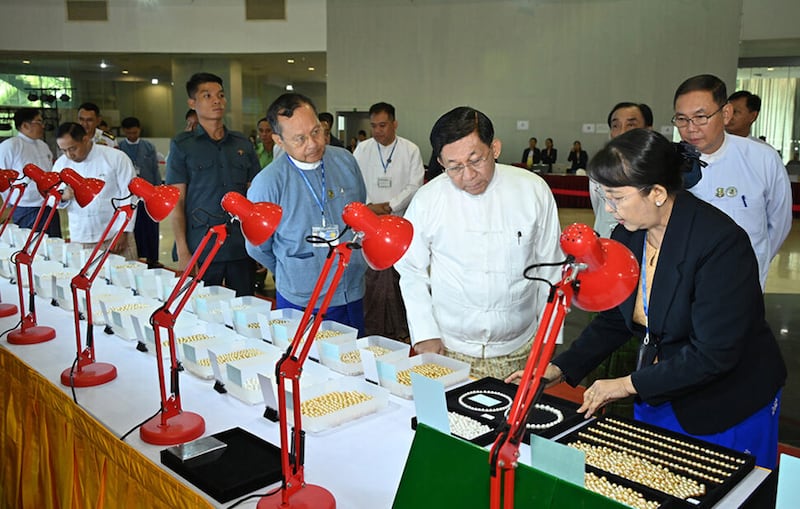
The military government’s Directorate of Investment and Company Administration (DICA), revealed that foreign investment in the first seven months of FY 2024-25 totaled only $226 million.
DICA’s data, as reported in Myanmar-Now, shows that most of that investment went to existing projects and operations; only four of 33 this year are greenfield investors.
Scaring up revenue
The junta has been searching for new sources of revenue.
The regime’s Minister of Energy, Ko Ko Lwin, held talks with the chairman of China National Petroleum Corporation in Beijing, where they discussed additional sales of oil and gas, and improbably increasing the capacity of Myanmar-China oil and gas pipelines.
Min Aug Hlaing made a show of attending the Myanmar Gems Emporium in Naypyidaw on Nov. 18, 2024, which remains one of the few reliable income streams for the junta.
The Irrawaddy noted that each year since the coup, the offered lots of jade have increased – from 1,955 in 2021, to 2,150 in 2022 and 4,025 in 2023.
The TNLA has worked to deprive the junta of proceeds from the ruby trade in Mogoke.
While it has allowed individual miners to continue, the TNLA has blocked all large-scale mechanized mining, which has been dominated by the military-owned Myanma Economic Holdings Limited.
RELATED STORIES
Myanmar military presses offensive after two groups agree to talk
Kachin, Shan residents face hardships as China and Myanmar block trade
Are Chinese private armies entering the fray in Myanmar?
Short on manpower, the junta is doing everything it can to force overseas workers home to be conscripted.
A new regulation puts the onus on manpower agencies to recall workers who have been conscripted. They have lobbied the Thai government to send the 2 million legal residents and upwards of 3 million undocumented Myanmar nationals home.
Those that continue to work abroad are a cash cow for the junta.
In September the SAC enacted a rule to force the expatriate workers to transfer 25% of their remittances through formal bank channels, where they must use the official exchange rate of 2,100 kyats to the dollar and 56 kyats to the baht. The black market rate is 3,400 kyats to the dollar and around 100 kyats per baht.
Economic warfare
The junta, however, is also waging its own economic warfare on the opposition.
While the junta has not been able to retake Mogoke or Lashio, it is actively bombing the towns to disrupt economic activity.
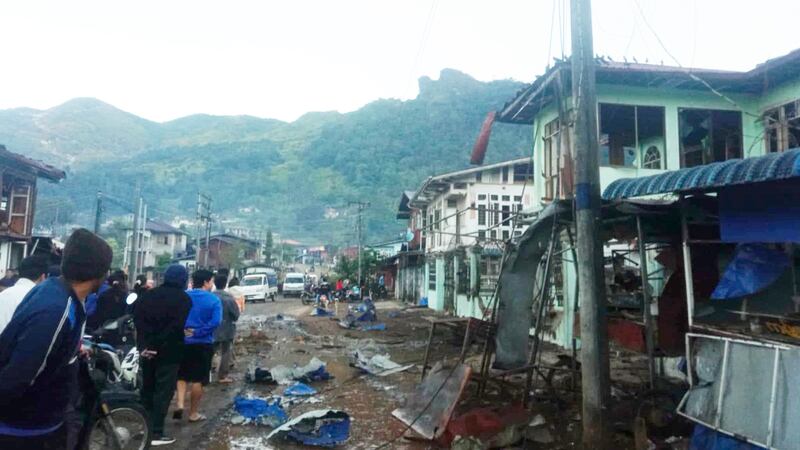
China’s border closures and internet and electricity outages of opposition-controlled crossings have put considerable financial pressure on the citizens in territories near the frontier controlled by ethnic armies.
Now the junta has blocked the sale of petroleum to opposition-controlled regions.
Fuel distribution is now legally banned to the entire Rakhine state, northern Shan State, Kachin with the exception of the state capital Myitkyina. Some 26 townships in Sagaing region, a township in Magwe, and two in Mandalay have suffered the same bans.
As short on resources as the junta is, they still have advantages over the opposition.
But saddled with corruption and plummeting morale, will it be enough?
Zachary Abuza is a professor at the National War College in Washington and an adjunct at Georgetown University. The views expressed here are his own and do not reflect the position of the U.S. Department of Defense, the National War College, Georgetown University or Radio Free Asia.
